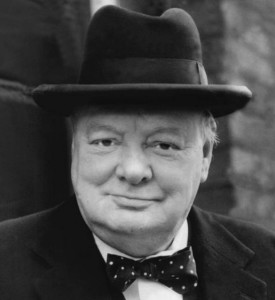 “We will never surrender” echoes as perhaps the most memorable line of Winston Churchill’s “We will fight them on the beaches” speech. It stirred England to fight off an invasion, largely alone.
“We will never surrender” echoes as perhaps the most memorable line of Winston Churchill’s “We will fight them on the beaches” speech. It stirred England to fight off an invasion, largely alone.
“Never surrender” resonates with our deepest sense of morality. No one has ever promoted running away in battle as virtuous behaviour in any society. Falling on one’s sword advises suicide before surrender. Fans hate hockey teams that give up. We want players to fight to the end even when a goal spread guarantees the outcome. The BBC still runs articles about Japan not surrendering in WWII.
Old Barns
On the other hand, only hobby farmers – romantic ruralists – rescue barns canted towards inevitable collapse. Real farmers, ones that have to make their living at it, let old barns fall or pay someone to tear them down. Rotten bovine cathedrals on crumbling foundations represent a nostalgic waste of time and money (based on personal experience). Systems crumble and fall. Maybe those with enough time to bemoan their passing have too much time to spare?
Sometimes giving up is wise.
Part time
Doctors spend their lives caring for patients, not fighting government. Government has unfettered control over legislation and regulation. They push relentlessly to change and build a system after their own design while doctors work relentlessly caring for patients. Government makes it harder. Politicians don’t want to hear about real problems, like access and coordination of services, only about ideas that make them look good in time for re-election.
A few days ago, we learned of yet another $20 million health innovation evaluation fund.
Note: that’s politicians-as-doctors spending money to grow the size of government instead of loosening the reins to let doctors take care of patients.
A Dark Place
My mother used to repeat, “If you don’t have anything good to say, don’t say it.”
Maybe surrender is the best tactical move for doctors right now? Fighting government requires full time hours. No one has that kind of time, and those hired to do it don’t seem clear on what it is they should resist.
Doctors Give Up
Are we delusional to think doctors haven’t given up on government long ago?
Either way, perhaps we should let Wynne and Hoskins fly forward under the weight of their hubris? Instead of falling on our sword, maybe doctors should just step back and watch what happens? But standing there doing nothing has never been easy for MDs.
photo credit: metro.co.uk


